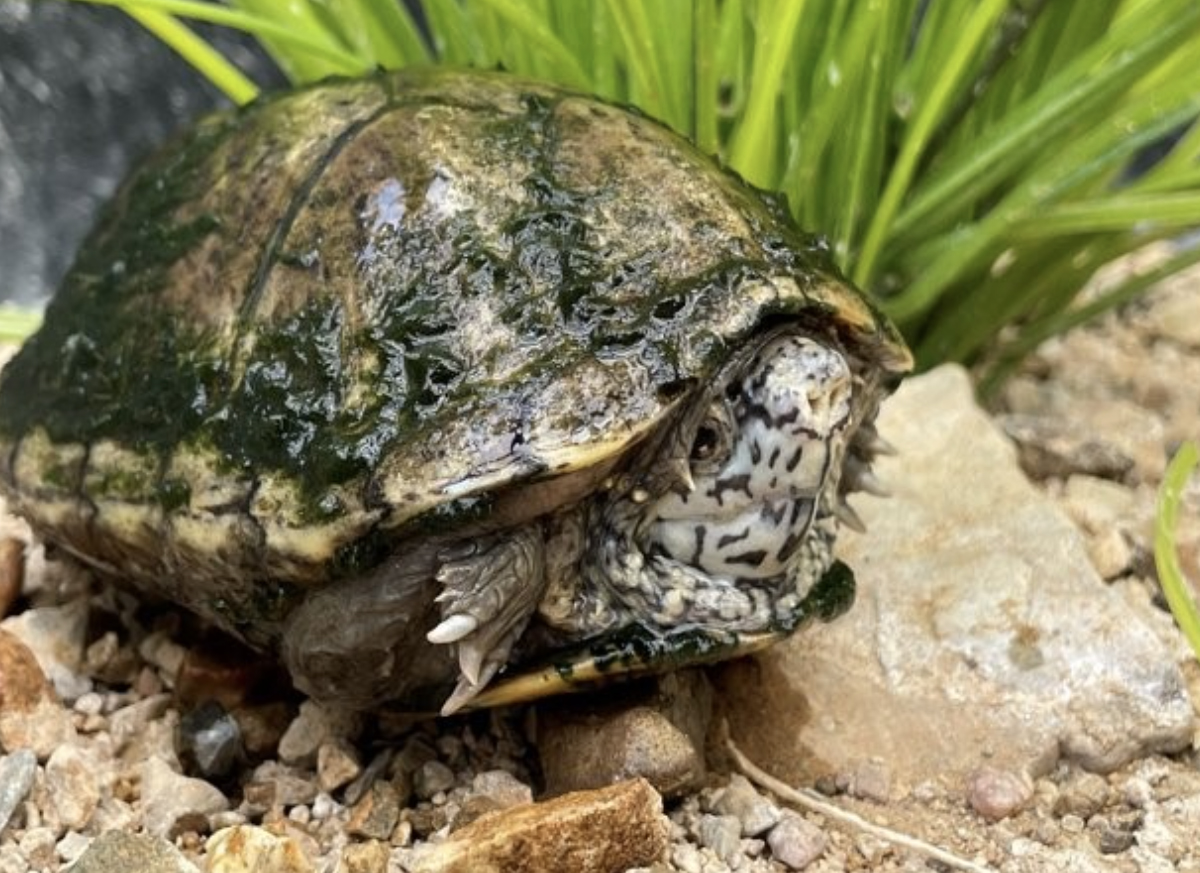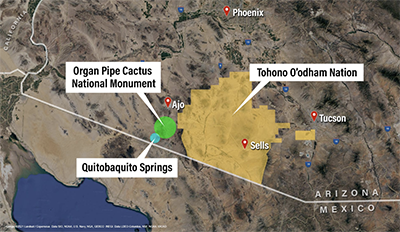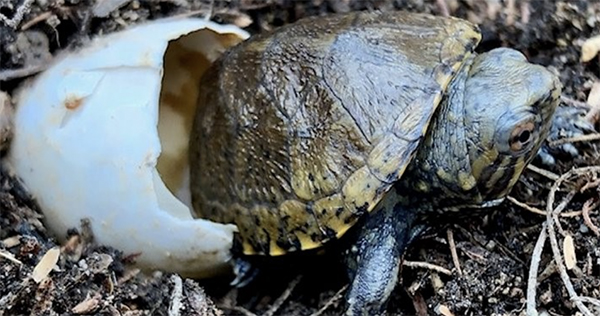Sonoyta Mud Turtle

About
Quitobaquito Springs is a true oasis in the desert, a rare freshwater source just a few hundred feet from the U.S./Mexico border and the last remaining U.S. natural habitat for the critically endangered Sonoyta mud turtle. Because these turtles are aquatic, they are good at swimming in ponds and waterways and are often covered in algae. The Sonoyta mud turtle is a subspecies of the more common Sonora mud turtle (Kinosternon sonoriense). They have also been referred to as stinkpot turtles because of the smell they excrete when disturbed or stressed.
Adaptations
Mud turtles have tough carapaces (shells) that help protect them from predators. They can close these shells nearly completely and survive short periods of drought by going temporarily dormant in a process called estivation. They also are able to swim, walk, and dig with their legs and are able to move around on land and in water. Mud turtles can hold their breath for long periods of time, allowing them to hide at the bottom of streams and ponds undisturbed. Mud turtles are surprisingly fast swimmers but also enjoy being on land, especially to bask in the sun.
Food Web
Mud turtles eat a variety of aquatic invertebrates, frogs, and small fish, as well as some plant material. At the Desert Museum, they are fed mealworms, crickets, krill, and cockroaches.

Habitat and Range
Sonoyta mud turtles are found in the wild at Quitobaquito Oasis in Organ Pipe National Monument and in the upper stretches of the Río Sonoyta in Mexico, as well as at the oases at Quitovac, a Tohono O'odham village located southeast of Sonoyta, Mexico.

Family Life
Female mud turtles build nests and lay eggs in the sandy soil surrounding a pond, stream, or oases. These moist areas keep their eggs from drying out. The incubation time for eggs is unknown, but we have witnessed 9-12 months for incubation in captivity. The hatchlings are tiny (the size of peanut M&Ms) and are on their own from day one. They are so tiny, weighing only 3 grams or the weight of one penny! Adults can weigh around 400 grams or about the same as a can of soda.
Glossary
- Carapace:
- The hard upper shell of a turtle, crustacean, or arachnid.
- Estivation:
- Prolonged dormancy of an animal during a hot or dry period.
- Critical Habitat:
- A habitat area designated as essential to the conservation of a species listed under the Endangered Species Act.
Challenges
- There is decreased water flow in Río Sonoyta due to human use and climate change.
- The borderlands of the Sonoran Desert face complex political challenges that impact the water table decline and could have deep impacts on already fragile ecosystems. The building of the border wall uses water for cement mixing, building trenches, widening roads, and other construction activities.
- Other threats to populations include habitat loss and destruction, potential wildfires, and introduced species.
Conservation
- The Desert Museum took in populations of mud turtles when the Quitobaquito pond started drying up in 2007 due to unknown causes.
- The Museum has been caring for a group of Sonyota mud turtles since 2007 and in 2016 joined forces with Organ Pipe National Monument and Pinacate Biosphere Reserve in Sonora, Mexico to collaborate on Sonoyta mud turtle conservation and education.
- On October 20, 2017, the Sonoyta mud turtle was officially listed as an Endangered Species by the United States Fish and Wildlife Service. The decision for the listing included a Species Status Assessment, shrinking population size, and a steady decrease in usable riparian habitat. The turtle was granted critical habitat in 2019.
Conservation Index
At The Museum
As of October 2023, the Desert Museum holds 14 adults, 3 juveniles (teenagers), and 16 babies. While these turtles are not located in a public exhibit, they are sometimes featured on the Museum’s social media.
